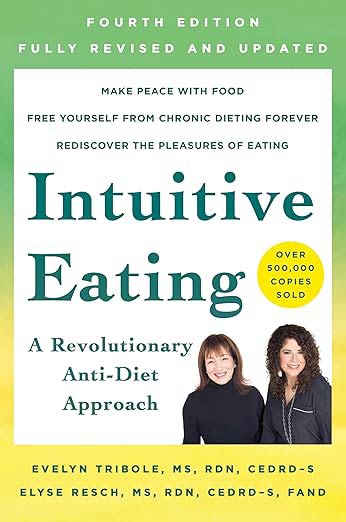Intuitive Counseling got its name from being inspired and moved by the work of dietitian nutritionists Evelyn Tribole, and Elyse Resch. Their book The 10 Principles of Intuitive Eatinghas been pivotal in the world of eating disorder treatment and the anti-diet-culture since it’s original publication in 1995. Now in it’s 4th edition, it continues to be a popular and life-changing approach for so many – including us!
If so, you’re not alone—and there’s a reason these patterns repeat.
Many of us unknowingly fall into unhealthy relationship roles that keep us stuck. One of the most powerful tools I use with clients to understand these dynamics is Karpman’s Drama Triangle, a model that helps us see the patterns—and break free from them. When we pair this with an understanding of codependency, the picture becomes even clearer.
In a nut shell, intuitive eating is a non-diet approach to health and nutrition that encourages a more natural, compassionate, and body-aware relationship with food. The book breaks down the 10 principles chapter-by-chapter that help individuals reconnect with their body’s innate hunger and fullness cues, cultivate self-trust, and break free from the toxic cycle of chronic dieting.
We will introduce and go more in depth for each principal as the months tick on – so stay tuned as each one unfolds.
Let’s first take a brief look at the ten principles of intuitive eating:
The 10 Principles of Intuitive Eating:
- Reject the Diet Mentality
- Honor Your Hunger
- Make Peace with Food
- Challenge the Food Police
- Feel Your Fullness
- Discover the Satisfaction Factor
- Cope with Your Emotions with Kindness
- Respect Your Body
- Movement—Feel the Difference
- Honor Your Health with Gentle Nutrition
These principles work together to form a holistic framework for eating that supports both physical and emotional well-being. Now, let’s explore the first principle in depth.
Principle 1: Reject the Diet Mentality
This is the foundational step of intuitive eating—and arguably the hardest for many. “Rejecting the diet mentality” means letting go of the belief that weight loss and rigid food rules are the keys to health, self-worth, and/or happiness.
What is the “Diet Mentality”?
The diet mentality includes:
- Believing that smaller bodies are inherently healthier or more valuable.
- Viewing food through a lens of “good” vs. “bad.”
- Equating eating habits with morality (e.g., feeling “bad” for eating dessert).
- Constantly seeking the next diet, cleanse, or “reset.”
- Judging yourself harshly for eating certain foods or amounts.
This mindset is deeply ingrained in most cultures and reinforced by media, social pressure, and even the healthcare system. It’s often based on restriction, willpower, and shame rather than nourishment, flexibility, and compassion.
Why is It Harmful?
Decades of research show that dieting often leads to weight cycling, increased food preoccupation, decreased self-esteem, and disordered eating behaviors. While diets may result in short-term weight loss, they rarely lead to sustainable health outcomes—and can actually do more harm than good, physically and emotionally.
What Does Rejection Look Like?
Rejecting the diet mentality involves:
- Throwing away diet books, unfollowing “fitspo” accounts, and distancing from toxic wellness trends.
- Recognizing and challenging internalized beliefs about thinness and worth.
- Giving yourself unconditional permission to eat.
- Shifting from external food rules to internal body cues.
- Embracing the idea that health isn’t defined by size or appearance.
This process takes time and self-compassion. Many people find it helpful to journal their experiences, work with intuitive eating professionals, or join support communities.
What Would Your Therapist Say?
Letting go of this core set of beliefs can be scary and life-changing all at the same time. Remember, change does not happen overnight and diet thoughts will not go away completely, but we can choose to respond to them differently. If we catch ourselves feeling guilt over certain food choices we can remind ourselves that this guilt isn’t truly ours to bear.
Conclusion
Rejecting the diet mentality is a brave, radical act in a world that profits from our self-doubt. It opens the door to a deeper, more trusting relationship with your body and food. Once this foundation is laid, the remaining principles of intuitive eating can be explored with more clarity and confidence.
In future articles, we’ll dive into each of the other nine principles and how they help build a balanced, intuitive approach to eating and self-care.
Resources:
We keep a full list of resources on anti-diet culture and body dissatisfaction work on our website. Check out our comprehensive list here.


